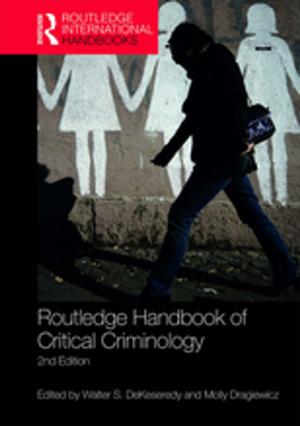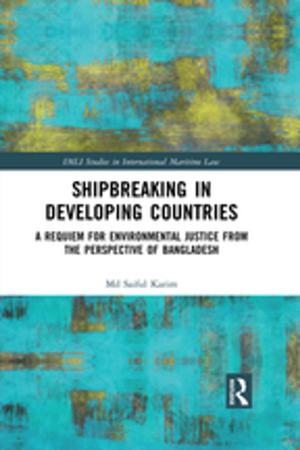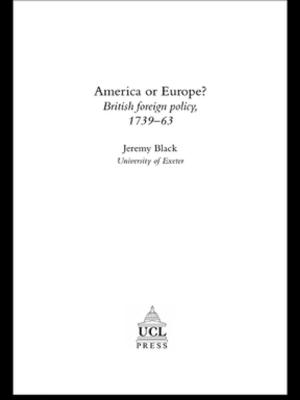The Italian and Iberian Influence in Accounting History
The Imperative of Power
Business & Finance, Accounting, International, Economics, Economic History| Author: | ISBN: | 9781351675017 | |
| Publisher: | Taylor and Francis | Publication: | October 2, 2017 |
| Imprint: | Routledge | Language: | English |
| Author: | |
| ISBN: | 9781351675017 |
| Publisher: | Taylor and Francis |
| Publication: | October 2, 2017 |
| Imprint: | Routledge |
| Language: | English |
The Italian and Iberian Influence in Accounting History provides compelling evidence of how accounting, when conceived of as a technology rather than simply as a tool to increase efficiency, can work as a means to sustain power relations in different sites, such as the Church, the State or the factory.
This book, drawing upon the growing body of work which focuses on Italy and the Iberian Peninsula, demonstrates how accounting practices were effective in the subjugation of single individuals or entire populations, whether Roman Catholic priests, State functionaries, inhabitants of conquered lands or workers. The effectiveness of accounting as a tool of power is linked to its neutral and technical appearance, which makes it difficult for those oppressed and controlled by its practices to oppose it. Its adaptability to different organizational contexts, as documented in The Italian and Iberian Influence in Accounting History, makes it a valuable tool for sustaining existing power relations and reproducing inequalities and exploitation.
The Italian and Iberian Influence in Accounting History is vital reading for academics and researchers in the fields of accounting, accounting history, political management and sociology and European history.
The Italian and Iberian Influence in Accounting History provides compelling evidence of how accounting, when conceived of as a technology rather than simply as a tool to increase efficiency, can work as a means to sustain power relations in different sites, such as the Church, the State or the factory.
This book, drawing upon the growing body of work which focuses on Italy and the Iberian Peninsula, demonstrates how accounting practices were effective in the subjugation of single individuals or entire populations, whether Roman Catholic priests, State functionaries, inhabitants of conquered lands or workers. The effectiveness of accounting as a tool of power is linked to its neutral and technical appearance, which makes it difficult for those oppressed and controlled by its practices to oppose it. Its adaptability to different organizational contexts, as documented in The Italian and Iberian Influence in Accounting History, makes it a valuable tool for sustaining existing power relations and reproducing inequalities and exploitation.
The Italian and Iberian Influence in Accounting History is vital reading for academics and researchers in the fields of accounting, accounting history, political management and sociology and European history.















